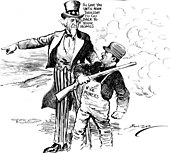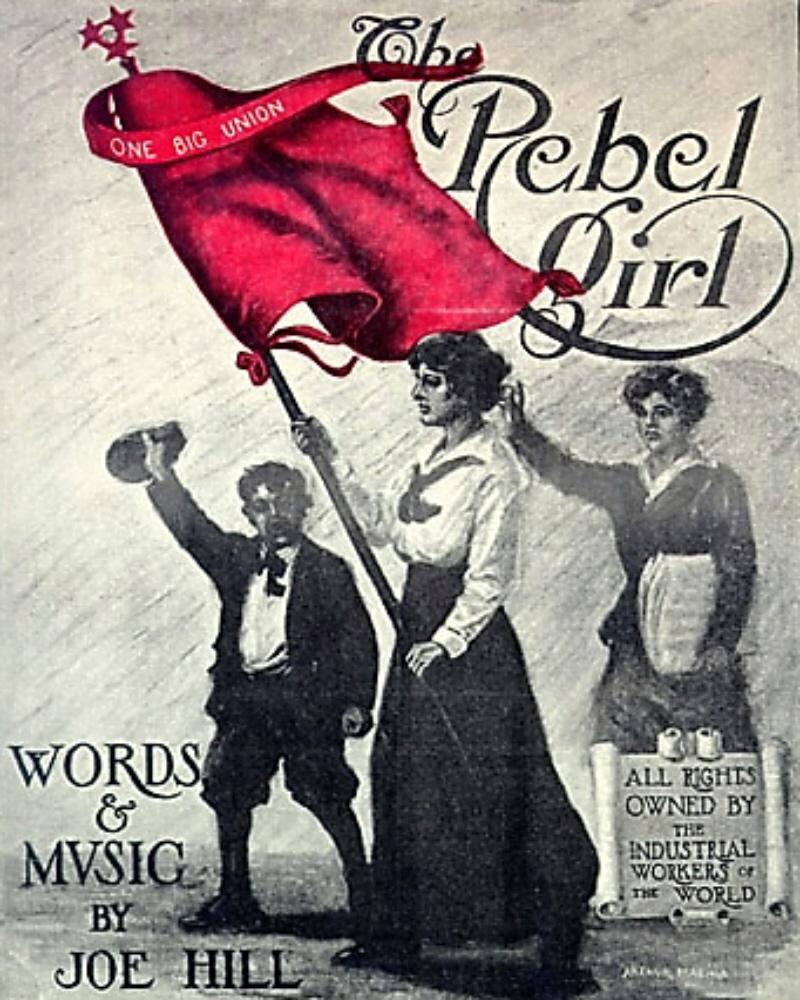1890s
Today in Labor History August 7, 1890: Elizabeth Gurley Flynn was born in Concord, New Hampshire. Flynn joined the IWW in 1907, two years after its formation, and quickly became one of their best organizers. She was instrumental in the Patterson Silk Strike (1913). In 1909, during the Spokane Free Speech fight, she chained herself to a lamp post to delay her arrest. Jess Waters portrayed her role in the Spokane struggle in his 2020 novel, “The Cold Millions.” John Updike also fictionalized her in his book, “In the Beauty of the Lilies,” (1996).
Flynn was a socialist early in her life, but later joined the Communist Party USA, rising to its chair in 1961. She was also a founding member of the ACLU, where she played an important role in the defense of Sacco and Vanzetti. Additionally, she was a feminist activist, fighting for birth control rights and women’s suffrage. In 1934, despite her poor health, she actively supported the West Coast Longshore Strike. She was also a prolific writing, including the 1916 book, “Sabotage: the Conscious Withdrawal of Workers Efficiency.”
Today in Labor History August 7, 1894: The authorities arrested Eugene Debs and three other union leaders following the Pullman Strike.
Ricardo Flores Magon
Today in Labor History August 7, 1900: The anarchist periodical “Regeneración” debuted in Mexico. It was published by the Flores Magón brothers (Jesus & Ricardo), along with Licenciado Antonio Horcasitas. The Magons later led a revolution in Baja California during the Mexican Revolution. Many American members of the IWW participated. During the uprising, they conquered and held Tijuana for several days. Lowell Blaisdell writes about it in his now hard to find book, “The Desert Revolution,” (1962).
1910s-1920s
Today in Labor History August 7, 1919: A month-long actors’ strike shut down all theatres.
Today in Labor History August 7, 1919: The Republic of the Councils of Hungary in Budapest was crushed by foreign reactionaries. On August 5, 30,000 Romanian troops entered the capital and began a reign of terror. They massacred a thousand workers in Csepel, on August 10. Thousands of Communists, socialists, unionists and innocent civilians were rounded up by fascist gangs, and then beaten, tortured and killed.
Today in Labor History August 7, 1921: 1,000 miners presented West Virginia Governor Morgan with a resolution calling for an end to martial law in Mingo County. Over the course of 1921, West Virginia miners had been fighting with mine guards, police, hired thugs and federal troops. This included the Matewan massacre and the Battle of Blair Mountain, which was part of the Mine Wars, the largest armed insurrection in the U.S. since the Civil War.
Denise Giardina, who lived in an Appalachian coal camp until she was 13, depicts these events in her novel, “Storming Heaven,” (1988). Topper Sherwood also writes about them in his novel, “Carla Rising,” (2015).
1930s-1970s
Today in Labor History August 7, 1931: Industrial Workers of the World (IWW) led a strike at the Boulder Canyon Project.
August 7, 1973: Four thousand Guatemalans marched in solidarity with striking teachers, sparking widespread union organizing in Guatemala City.




Pingback: Today in Labor History November 20 - Michael Dunn
Pingback: Today in Labor History January 29 - Michael Dunn
Pingback: Today in Labor History February 25 - Michael Dunn